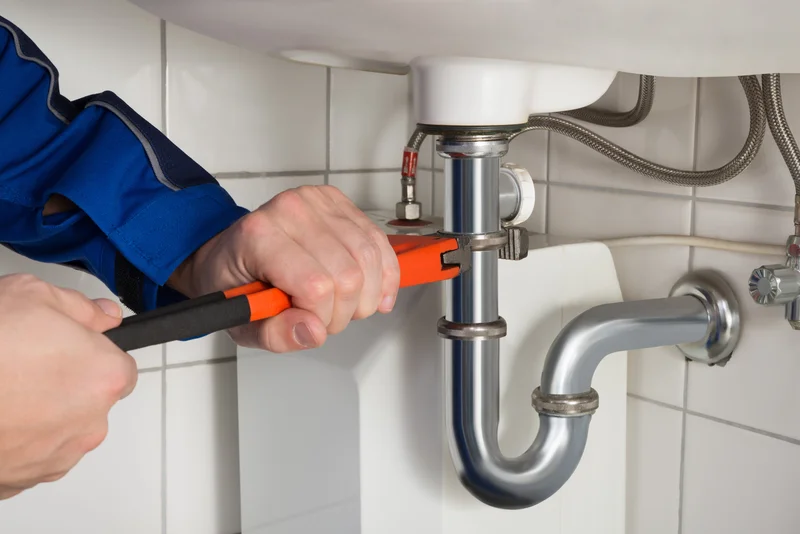Homeowners must have a working knowledge of their home’s plumbing systems to ensure safe and efficient operation. The complex pipes, valves, and drains network requires monitoring, maintenance, and timely repairs to avoid disruptive plumbing failures. Plumbing consists of supply and drainage subsystems, with the former providing potable water and the latter disposing of wastewater. Understanding this foundational dichotomy can help homeowners communicate with service professionals or perform minor repairs.
Table of Contents
Recognizing Common Plumbing Problems
Plumbing problems range from obvious issues to subtle ones. Dripping faucets may indicate internal problems or high water bills. Low water pressure may indicate an obstruction or a break in the main line. These problems could be early warning signs of more significant issues within the plumbing system. Homeowners facing such plumbing concerns can rely on the expertise of a reputable plumber in New Braunfels, TX, to diagnose and resolve these issues promptly. Hiring a professional plumber in New Braunfels ensures that plumbing problems are addressed precisely, preventing further damage and inconvenience. Expert plumbers can offer water conservation tips, suggest eco-friendly fixtures, and provide regular maintenance. This can extend the plumbing system’s life, save money on repairs, and ensure optimal functionality.
Clogged drains are:
- Another hallmark of plumbing issues.
- Arising from accumulations of hair.
- Grease.
- Foreign objects.
They manifest with water backing up in sinks and bathtubs, requiring immediate attention. Tactical interventions like plunging or using drain snakes can offer temporary relief, but consistent problems may need a more in-depth approach, even professional cleaning, to remedy the situation.
Tackling Silent Culprits: Hidden Leaks
Unlike the insistent drip of a faucet, some leaks are clandestine, escaping notice until they’ve inflicted significant damage. These silent culprits often lurk inside walls, beneath floors, or above ceilings—stealthily undermining structural integrity and potentially fostering mold growth. Watchfulness for less obvious signs, such as an unexplained increase in the water bill, stains or buckling on walls and ceilings, or the sudden appearance of mildew, is paramount in combating these insidious issues before they spiral into costly repairs. For homeowners unfamiliar with the subtleties of plumbing, recognizing the common causes and effects of water leaks can be a valuable resource in preemptive detection and intervention.
The Impact of Hard Water on Plumbing Systems
If your soaps and shampoos must be lathered correctly or your dishes emerge from the dishwasher speckled with residue, you might be grappling with hard water’s effects. Despite high levels of calcium and magnesium, hard water can have a calcifying effect on pipes and fixtures, leading to diminished water flow or premature failure of water-using appliances. Understanding the signs and implementing solutions such as water softeners or descalers can make a substantial difference in the performance and resilience of your plumbing system.
Preventing Toilet Troubles
A reliable toilet is a cornerstone of modern home comfort, yet it’s vulnerable to various malfunctions, from minor annoyances to significant disturbances. Quick intervention with flapper or fill valve adjustments can often halt a toilet’s perpetual water cycle, resolving constant running with a simple tweak. Conversely, a toilet prone to overflows or manifesting stubborn clogs elevates the issue from nuisance to potential hazard, necessitating professional evaluation. Relying on reliable sources like the Environmental Protection Agency’s statistics and facts can aid homeowners in making educated decisions about toilet repair or replacement, emphasizing water conservation and efficiency.
DIY Plumbing vs. Professional Assistance
The internet age brings a wealth of information, including countless tutorials on handling home plumbing issues. While many tasks, from replacing washers to installing new fixtures, are viable DIY projects, it’s crucial to understand one’s limits in terms of skill, knowledge, and tools before diving in. In situations where the risk of property damage or personal injury is high, or when dealing with complex system aspects like main sewer lines, turning to professional services is a wise choice.
Plumbing Maintenance: Tips and Best Practices
An ounce of prevention is worth a pound of cure, particularly regarding plumbing. Simple preventative measures such as avoiding the disposal of grease down kitchen drains, routinely inspecting pipes for signs of moisture and addressing minor leaks promptly can significantly impact the longevity and reliability of your plumbing systems. Adding seasonal checks, like ensuring the proper operation of sump pumps before rainy seasons or winterizing pipes to prevent freezing, into your maintenance routine can foreclose many common seasonal plumbing emergencies.
The Evolution of Plumbing Technology
Advancements in plumbing technology continue to push the boundaries of home maintenance and efficiency. Innovative practices like trenchless sewer repair can address underground pipe issues with minimal disruption to your property. At the same time, water leak detection systems integrate seamlessly into smart home networks to provide real-time monitoring and alerts. These modern conveniences offer homeowners not only peace of mind but also the opportunity to stay ahead of potential problems through proactive management.
Educating Yourself on Local Water Quality
What’s in your water affects your health and plays a pivotal role in your home’s plumbing integrity. High minerals or contaminants can accelerate wear and tear on pipes and appliances, necessitating more frequent maintenance or replacements. Understanding your area’s unique water quality challenges is essential, and resources for water testing or consultations with local water authorities can be invaluable in mapping out an effective plumbing care strategy.
Conclusion: The Importance of Being Proactive in Plumbing Maintenance
The complexities of home plumbing systems require an informed understanding and a proactive approach to maintenance. Staying vigilant against common issues, implementing a regimen of preventive care, and knowing when to seek the expertise of a seasoned professional will contribute significantly to the performance and durability of your plumbing. Remember, when in doubt or faced with a persistent problem, consult a reputable plumber to ensure your home runs as smoothly and efficiently as the water through your pipes.
Appreciate it!

